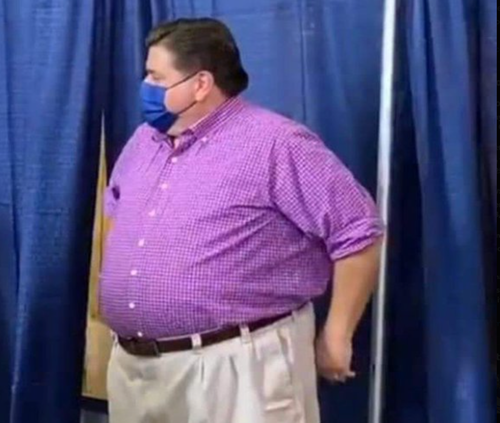Obamacare Returns To Scotus, With Preventive Care On The Line

The U.S. Supreme Court will hear arguments today on Obamacare’s mandate that insurance companies cover everything from depression screenings to HIV-prevention drugs.
The lawsuit, brought by conservative employers in Texas, targets the expert panel that advises HHS on which preventive care services insurers must cover without cost-sharing. The employers argue the task forces are unconstitutional because their members are not confirmed by the Senate nor chosen by a Senate-confirmed agency head.
President Donald Trump, a longtime critic of the Affordable Care Act who tried to repeal it during his first term, surprised many in February when his administration adopted the Biden administration’s defense of the law. But Biden’s justice department focused largely on the health impacts of dropping the coverage requirements. The brief Trump’s DOJ filed earlier this spring, on the other hand, stressed that the mandate is constitutional because Health Secretary Robert F. Kennedy Jr. can order HHS’s preventive care task force to study a particular service or medication, remove any of its volunteer members who don’t comply, ignore or delay review of their recommendations, or make sure they never see the light of day.
This argument has progressive health advocates who filed amicus briefs in the case on edge — particularly given Kennedy’s views about vaccines and other preventive health care that contradict the medical community’s consensus, and his reported desire to overhaul other HHS advisory committees.
“It's important that they're looking to protect this authority, but we're hoping that they're not just doing it because they want the ability to ruin our health care,” said Leslie Dach, a former senior counselor at HHS who now leads the group Protect Our Care. “We are very, very nervous that they will take a sledgehammer to vaccines, take a sledgehammer to contraception and a number of other preventative services that the American people benefit from and need.”
Vaccines and contraception would not be immediately implicated by a ruling in this case because their insurance coverage is determined by other HHS advisory panels, not the U.S. Preventive Services Task Force. But lower federal courts are considering challenges to those other panels, and the Supreme Court’s decision could set a precedent that preserves or restricts access.
Lower federal courts also agreed with the Texas employers' separate argument that some of the Affordable Care Act's requirements, including insurance coverage of the HIV-prevention drug PrEP, violated their religious rights. In their challenge to PrEP, the Texas employers argued they shouldn’t have to cover the drug because it “facilitate[s] and encourage[s] homosexual behavior, prostitution, sexual promiscuity, and intravenous drug use” in conflict with their Christian beliefs. But the lower court rulings only allowed the plaintiffs in the case to opt out of covering PrEP for their employees while the case proceeds, and the Biden administration did not appeal that part of the ruling to the Supreme Court.
While a religious carveout for PrEP is not part of today's arguments, some public health experts fear other employers could cite the lower court's rulings in lawsuits aimed at obtaining their own exemptions.
HIV/AIDS advocates are also concerned that PrEP would almost certainly be on the chopping block if the Supreme Court rules that the U.S. Preventive Services Task Force is unconstitutional. Such a ruling would give "insurers the ability to cherry-pick which preventive services they're going to cover free of cost," said Anu Dairkee, a fellow with Harvard University's Health Law and Policy Clinic. "Given the cost of PrEP and the associated services around it, it could be one of the most vulnerable on the list."
More than a dozen groups that work on HIV and AIDSwrote an amicus brief urging the court to maintain coverage, arguing that the drug hashelped make a major dent in transmission of HIV since it was approved in 2012, moving the country toward the goal Trump set in his first administration of ending the epidemic by 2030. But federal data shows use of the PrEP lagging in low-income communities of color at highest risk for infection — a trend HIV experts fear will worsen if the Supreme Court rules that insurance companies don’t have to cover the drug. Without insurance coverage, the medication can costup to $30,000 per year.
“PrEP is expensive, and it requires follow up labs, so insurance coverage has been transformative for its uptake,” said Carl Baloney, the CEO-elect of AIDS Watch. “It’s one of the greatest innovations in fighting against HIV since the advent of antiretroviral treatment. So ensuring that folks have the self determination to go on PrEP if their doctor deems it's needed — that needs to be maintained as a biomedical intervention.”


